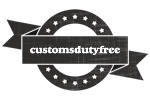Below are the important categories of taxes in Bangladesh.
- Personal Income TaxA tax paid by individuals to the government, the amount of w...: The rates of Personal Incomes Taxes (PITs) are determined on the basis of differentiated income of different income groups. Bangladesh’s taxA fee imposed by a government on personal or corporate incom... system has five income brackets. There are differentiated
rates and taxA fee imposed by a government on personal or corporate incom... exemptions for different types of taxpayers, for instance the threshold of taxable income for women and senior citizens of 65 years and above is 3.00 lakh, 3.75 lakh for physically challenged persons and 4.25 lakh for war-wounded gazette freedom fighters. - Wealth TaxA fee imposed by a government on personal or corporate incom...: Despite having a structured mechanism of corporate and personal income taxation, the country still
lacks a systematic wealth taxA fee imposed by a government on personal or corporate incom... mechanism. There is no systematic effort of assessing property and financial assetsAnything of value which is owned by an individual, company, ..., and of collecting taxes accordingly, yet there are provisions of imposing a 10% surcharge on net wealth, the threshold is TK. 2 crore and 25 lakh of the priceThe amount of money required to purchase something or to bri... of net wealth in 2015-16. - Corporate Income TaxA tax paid by individuals to the government, the amount of w...: Rates of corporate income taxA tax paid by individuals to the government, the amount of w... also vary from company to company on the basis of their type. Usually the agro-based industries enjoy low taxation in comparison to manufacturing and service providing
industries. Yet, a number of export oriented manufacturing industries, e.g. readymade garments (RMG), enjoy taxA fee imposed by a government on personal or corporate incom... holidays and other advantages like low import tariffs on imported materials. - Excise duty: Bangladesh has no excise taxA fee imposed by a government on personal or corporate incom... as such, it is an excise duty. An excise duty is a taxA fee imposed by a government on personal or corporate incom... on sales or production for sale. Such duty is considered as an indirect taxA fee imposed by a government on personal or corporate incom..., meaning that the producer or seller who pays the taxA fee imposed by a government on personal or corporate incom... to the government is expected to try to recover or shift the taxA fee imposed by a government on personal or corporate incom... by raising the priceThe amount of money required to purchase something or to bri... paid by the buyer. The excise duty applies to only two items: bank deposits and domestic air tickets. Excise duty on Bank deposits starts with Tk 150 per deposit account per year, if the balance ranges between Tk 20,000 to Tk 100,000. The highest charge is Tk 150,000 when the balance, whether creditAn arrangement in which an item for sale is received by the ... or debit, exceeds Taka Five crore at any time during a year.
- Value Added TaxA fee imposed by a government on personal or corporate incom... (VAT): This taxA fee imposed by a government on personal or corporate incom... applies to the marketThe commercial activity of buying and selling goods and serv... value added to a productThe result of a manufacturing or natural process (such as fo... or material at each stage of its manufacture or distribution.A simple VAT is regressive in that lower-income consumers generally consume a higher fraction of their income than others, and the VAT does not apply to income that is saved/invested. VATs often exclude certain goods, with the intent of creating some degree of progressivity.
- TradeThe buying and selling or exchange of goods and services. Th... TaxA fee imposed by a government on personal or corporate incom...: The shareAny of the equal units into which a company's capital stock ... of import and export based taxA fee imposed by a government on personal or corporate incom... in total taxA fee imposed by a government on personal or corporate incom... receipts has been declining; it was 73.98% in 2005 and dropped to 27.57% in 2014. The major decline happened from FY 2009 onwards: in 2009 it stood at 68.84%, dropping to36.83%. The rates of tradeThe buying and selling or exchange of goods and services. Th... taxA fee imposed by a government on personal or corporate incom... vary from productThe result of a manufacturing or natural process (such as fo... to productThe result of a manufacturing or natural process (such as fo...; higher rates are usually put on luxury goods, and lower rates on essential goods that are not produced locally. There is zero import dutyA tax charged on certain goods which are brought into a coun... on some products e.g. computer and computer accessories.
- Presumptive/Turnover taxA fee imposed by a government on personal or corporate incom...: The contribution of the turnover taxA fee imposed by a government on personal or corporate incom... to total taxA fee imposed by a government on personal or corporate incom... revenue is very little: 4 to 6 crore Taka from FY 2005 to 2014. The shareAny of the equal units into which a company's capital stock ... of turnover taxes has also declined over the period: from 0.019% to 0.004%. Turnover taxA fee imposed by a government on personal or corporate incom... (TT) has preferential provision for small enterprises with an annual turnover below Tk. 80 lakh. They pay turnover taxA fee imposed by a government on personal or corporate incom... at a lower rate of 3 percent. Under the ‘turnover tax’ provision, an entrepreneurAn ambitious person who starts new business ventures in orde... has to keep a minimum ledger accounting that could reduce his administrative cost.
- Gender Analysis: The gender implications of fiscal policyA government policy to regulate a nation's annual economic a... are a critical concern in a country like Bangladesh, where a number of problems affect mostly women. The unequal property ownership, wage discrimination and the unequal distribution of power in the household, these need to be taken into account in designing fiscal policies. Women have been considered only in the tax-exemption threshold for individual taxpayers; in other areas of taxation, there is no different rate for women and men. In the exemption threshold for individual taxpayers, there is different rate for women and men. The proposed taxexemption threshold for individual taxpayers was raised from Tk. 2 lakh 20 thousand to Tk. 2.5 lakh and from Tk. 2.75 lakh to Tk. 3 lakh for women.

